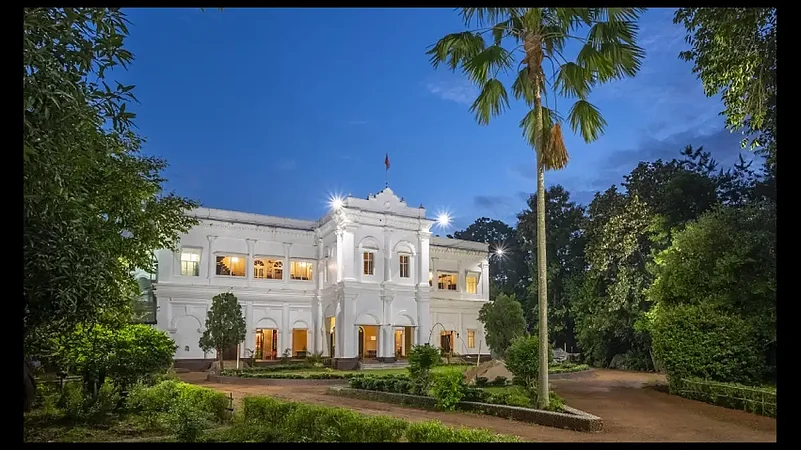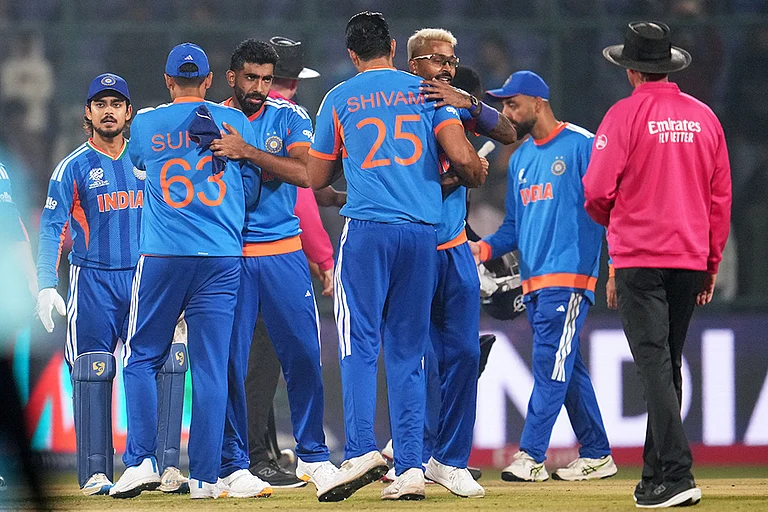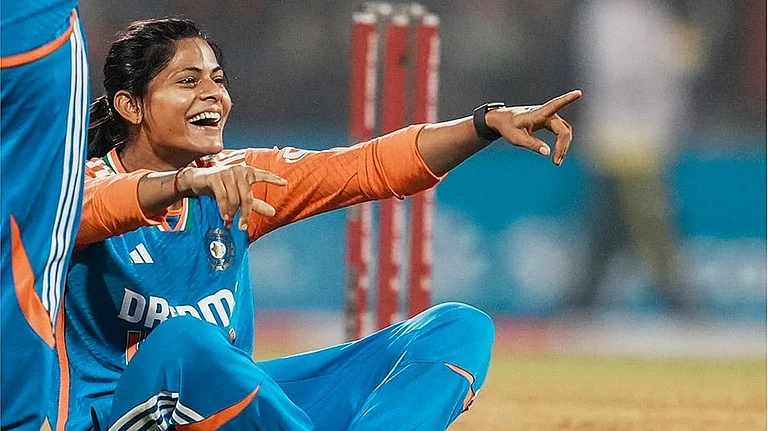Less than four hours’ drive from Kolkata, Baripada to me was always an entry point to Simlipal tiger reserve of Odisha and I believed there was nothing in the town that would make me to stop there. So I blinked in surprise as the gleaming white palace loomed before my eyes, standing at the end of a long driveway and surrounded by mango and other trees. Inside, it was even more opulent with vaunted ceilings, pillars, lots of polished wood doors and large glass windows. Shining period furniture, chandeliers, and bric a bracs that spoke of well-travelled people with elegant tastes, filled rooms and verandas. Larger than life oil paintings, some by old masters, and framed family photographs adorned the walls. Bookshelves in the library were filled with an eclectic collection of books. I looked around in awe as the Bhanj Deo sisters, Mrinalika and Akshita, introduced me to one of their family’s best kept secrets, the Belgadia Palace.
The Bhanj Deos were the rulers of pre-Independent India’s Mayurbhanj state, which was incorporated into Odisha after the merger in 1949. It was mainly the sisters who convinced the family, who live in a part of the palace, to open the remaining section as a boutique hotel. However, it was a humongous task to turn around the place. A large section of the 200-year old palace, which had remained shut for many years, and many of the artefacts, were in a dilapidated state. Electricity and plumbing had to be overhauled.
So they sought Kolkata-based architect Pooja Bihani’s help for the restoration of the building. “The restoration required meticulous planning to say the least,” said Bihani. “Remaking ceilings and reinforcing the very structure of the building was critical,” she said.
Bihani kept the shell of the house intact but broke down the original 25 rooms, and redesigned the space to accommodate luxury suites, conference spaces, an extended library, billiards and theatre room, extended dining room, rooftop for performances, gym, spa, museum with a few additional verandas.
I was allotted the Bengal Renaissance Suite, a reminder of the palace’s link with Kolkata and Bengal. It is said that the palace was built by Maharaja Sri Ram Chandra Bhanjdeo for his second wife Sucharu Devi (daughter of Keshub Chandra Sen, a noted 19th century philosopher and social reformer of Bengal). Although the Maharaja (then the Crown Prince) was engaged to marry Sucharu Devi, owing to his position had to agree to marry the royal bride chosen by his family. However, Sucharu Devi decided to remain single after the engagement was broken. The Maharaja married her after the death of his first wife. Probably the name Belgadia is also an adaptation of the Belghuria garden house of the Sen family.
Sri Ram Chandra Bhanj Deo was the first person to prospect for ore and minerals in Mayurbhanj. According to records, Jamshedji Tata entered into a contract with the king in 1905 when he came to know about the vast iron ore deposits in the region. The ruler was also the patron of the Baripada Musuem (founded in 1903), one of the oldest in Odisha.
Although the palace could be a destination by itself and I would not have minded spending my days enjoying the fine library, the Bhanj Deo sisters insisted that I take a look in and around the town of Baripada to know more about the former kingdom.
A drive around Baripada brought to light many administrative buildings, which go a long way to prove that the later Mayurbhanj rulers were indeed visionaries. They had introduced fire stations, courthouses, police stations, jails, etc. We took a look inside the former Mayurbhanj palace, which was designed after the Buckingham Palace and now housed the Maharaja Purna Chandra College. The colonial style Jubilee Library was our next stop.
One evening, the sisters took me to see Haripur, about 15km away. It is believed that Maharaja Harihar Bhanj shifted his capital here from Khiching in the early 15th century. Sitting next to ruins of what could have been a palace complex or a fort were two temples. The Rasikraya temple was reminiscent of the sloped-roof terracotta temples of Bengal. Most likely, the temple was covered with decorated terracotta tiles, of which only a few remain towards the bottom. Earlier excavations had revealed many artefacts, local people informed us.
The tiger reserve was about 25km away. Owing to the paucity of time, this time we went to visit the nearby Joranda and Barehipani waterfalls but if you are visiting Jashipur (95km away), the administrative headquarters of the Simlipal Tiger Reserve, pay a visit to Khiching, the earlier capital of the Mayurbhanj rulers.
Odisha is known for its cuisine and in the royal Bhanjdeo household it reaches a different level. With the family members marrying into various royal families of India and Nepal, the kitchen is adept in serving a variety of original and experimental dishes.
And if you are afraid of putting on calories, go for a walk in the garden or the orchard.
Belgadia Palace can also arrange for a Mayurbhanj Chhau performance. Here the dancers do not don any mask unlike the Chhau dancers of Purulia in West Bengal and Seraikela in Jharkhand. The palace can also arrange for a visit to the villages where dhokra (dokra) and sabai grass handicraft are made.
The sisters are also working with local artisans to promote local handicrafts, even training the artists to adapt their craft to suit modern trends. These local crafts, especially the decorative and utility products made from ‘sabai’ grass make for excellent souvenirs and gifts.
My trip to Belgadia Palace and Baripada ended with a visit to the Jagannath temple, also known as the Haribaldevjew temple. Built under the patronage of Raja Baidyanath Bhanj, the 16th-century temple drew inspiration from the Kakharua Baidyanath temple. Interestingly, during the annual Rathayatra festival (usually in July), when Lord Jagananth and his siblings – Lord Balabhadra and Goddess Subhadra – ride a chariot to visit their aunt, it is only here that the chariot of Subhadra is pulled by women, unlike other places, where men pull all the three chariots.
Getting There: Baripada in Odisha is about 195 km by road from Kolkata and 207 km from Bhubaneswar, its nearest airports. By road and rail, it is connected with Kolkata, Bhubaneswar, Cuttack, Balasore, Jamshedpur, etc. You may visit the Belgadia any time of the year. For sightseeing, the best time is between November and March.
For booking and other details of Belgadia Palace, see here .


























